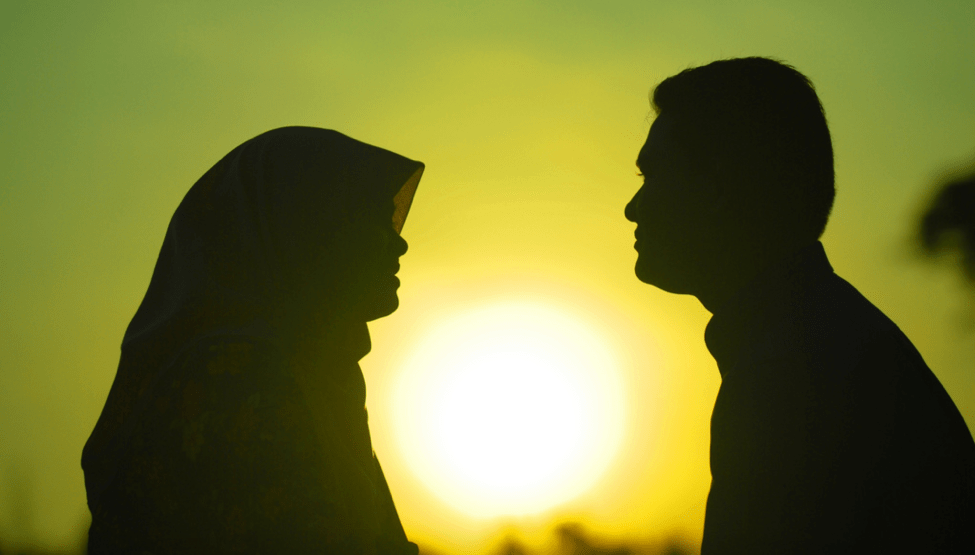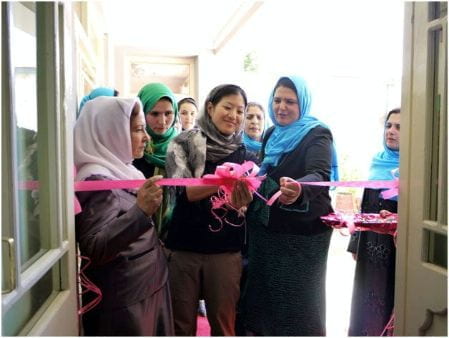
“And the Oscar goes to, Mad Max! No.” The audience laughs as they await the announcement from host Louis C.K. for the winner of the 2016 Best Documentary Short. He pauses, then reads “A Girl in the River: The Price of Forgiveness, Sharmeen Obaid-Chinoy!” Applause erupts as Obaid-Chinoy makes her way to the stage, and during her brief acceptance speech she reveals that “Last week, the Pakistani Prime Minister has said that he will change the law on honor killing after watching this film. That is the power of film.” Another round of applause sweeps across the theater as the crowd cheers the progress made to end this extreme case of violence against women.
Obaid-Chinoy’s film focuses on eighteen-year-old Saba, a Pakistani girl who was the victim of an attempted honor killing, defined by the BBC as “the murder of a person accused of ‘bringing shame’ upon their family. Victims have been killed for refusing to enter a marriage, committing adultery or being in a relationship that displeased their relatives. In many instances, the crimes are committed by family members against a female relative.” Saba survived the encounter, and the resulting documentary chronicling her experience caught the attention of human rights activists around the world. Pressure from these groups was put on the Pakistani government to change the law allowing the perpetrators of honor crimes to avoid charges should the victim or relatives of the victim forgive them, and as of October 2016 the law was changed so that there are now mandatory prison sentences for those who commit an honor killing. However, this is not the case for every country, as other loopholes exist to protect the perpetrator while simultaneously punishing the victim.

During my stay in Jordan, a second film on honor crimes caught my attention. Shown to the local community at the Abdul Hameed Shoman Foundation in downtown Amman, I sat with 50 other people as we watched If You Meant to Kill Me, a 2014 feature length documentary by Jordanian filmmaker Widad Shafakoj. Her film spotlights Jordanian women who are survivors of honor crimes but were detained in prison by the state “for their own protection” due to the lack of shelters serving victims in the community. These women would spend years inside their cell, released only after a family member signs a paper stating they would not harm her or until the guards arbitrarily decide to let her go. Once released, the women often have no money, no community connections, and no support to help them start again.
Jordanians who commit honor crimes face the threat of arrest in theory, but traditions and stigmas going back generations have created informal barriers to prevent the perpetrators from conviction. An honor crime is not committed by a single individual but instead multiple individuals, ranging from immediate family members to a group within the community. This poses a difficulty for police to convict participants because they must identify an entire social network. To counter this difficulty, they have adopted a second approach that only involves a single person: the female target/survivor. By putting the target/survivor in jail, it relieves the justice system of the stress of convicting an entire family or worrying about another crime being committed. The system also faces little backlash for this decision as the families of the women imprisoned accomplishes two tasks. Without advocates to help their case, the female target/survivor resorts to her families for a signature for release; thus, exposing herself to a future risk of violence.
Jordan is publicizing its work on improving other women’s issues inside of its borders, with some measured success. The Convention on the Elimination of All Forms of Discrimination against Women (CEDAW), adopted by the UN General Assembly in 1979, and ratified by Jordan in 1992 with the intention of allowing women to have equal rights under the law. However, Jordan still maintains two reservations to the document:
The first reservation is against Article 9, which states that women and men should be granted equal rights in transferring their nationality to their children. Currently, a child of a Jordanian man and a foreign woman can take Jordanian citizenship, but a child of a Jordanian woman and a foreign man cannot take Jordanian citizenship without a special identification card. The second reservation is against Article 16, which states “Parties shall take all appropriate measures to eliminate discrimination against women in all matters relating to marriage and family relations.” Here is where the difficulty lies, for within a marriage the woman has far less legal power and is therefore tied to the relationship formally and informally, even when violence is introduced.
Freedom House, in 2010, reported that while “domestic abuse is a valid reason for initiating such a divorce, it is often very difficult for a woman to prove her case, because Shari‘a courts require the testimony of two male witnesses.” This poses a significant deterrent for victims to come forward as their own testimony will not be adequate in a court of law. They also risk forced imprisonment for their safety should they come forward, making the risk even less of an option. Besides acting to protect their own safety, the women also shoulder the burden of staying to protect their children. Freedom House reports that the father is the de facto guardian of his children, and while the mother may be able to leave with the children initially, should she remarry she would lose custody. This forces the mother into a position of staying in an abusive situation, where there is a threat of death, or leaving without the security of a second income source to support herself and her children.

With the outcry growing louder to find a better solution for these women instead of placing them in protective imprisonment, a small number of departments and shelters developments give an attempt at a solution. The Jordanian government created the Family Protection Department within the Public Security Directorate in 1997 to work specifically on cases of domestic violence and sexual assault; however, their focus is children in the family, instead of the women. In 1999, the Jordanian Women’s Union opened a shelter capable of housing 20 women. The Family Reconciliation Centre opened its first house for 50 women in 2007 and a second in 2009 for 80 women. A
Between the three current shelters, a maximum of 150 women can be protected in a non-prison environment, but with a population of 9.5 million as of 2016, the number of shelters are incredibly too small to adequately serve the women of Jordan. Even if women are gaining more rights to interact equally in the public sphere, the lack of safety for some women in the private sphere blocks them from participating in this progress.
The dedication of more resources is necessary to ensure the women in danger are properly cared for in a safe environment. Additionally, attention to convicting perpetrators is imperative; allowing the women to reenter society knowing they are not at risk for future harm. Freedom House does note that Jordan is taking steps to enact more punishments that are forceful: “stricter sentences are now issued for honour killings and a new specialized tribunal was set up by the Ministry of Justice in 2009 to hear such cases.” The arrests of those committing the acts must occur immediately to hasten the release of the victimized women presently held indefinitely within the Jordanian prison system.
